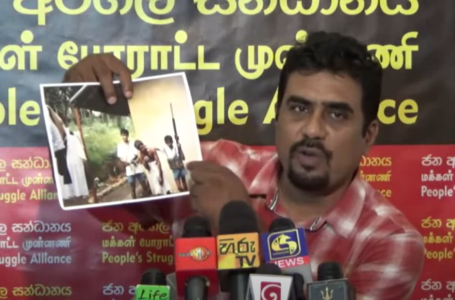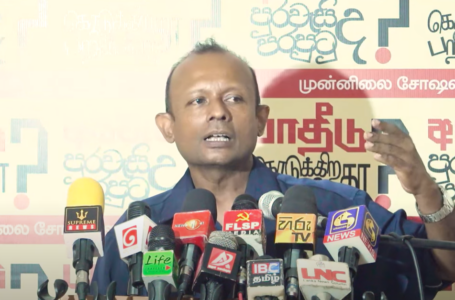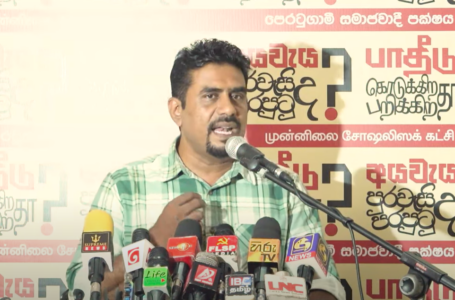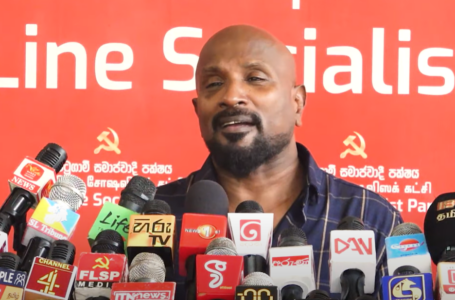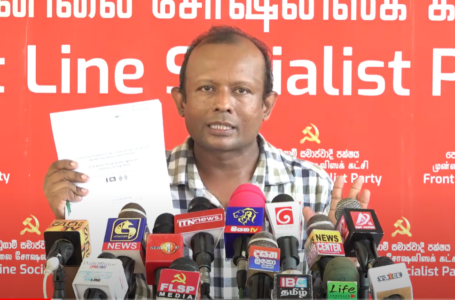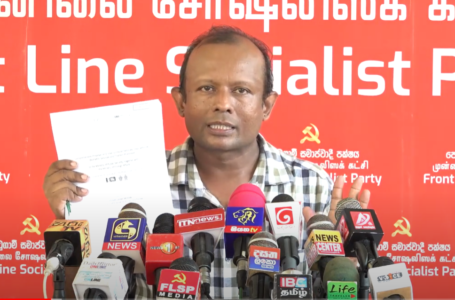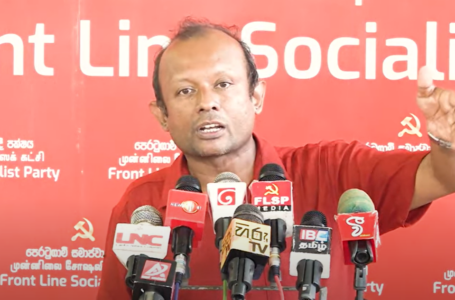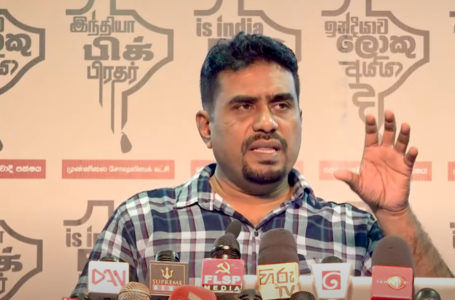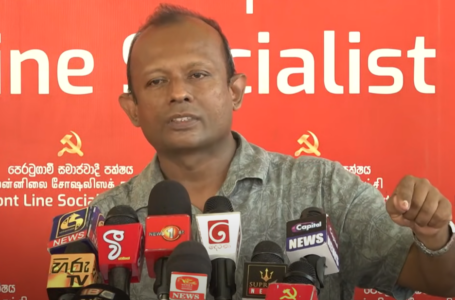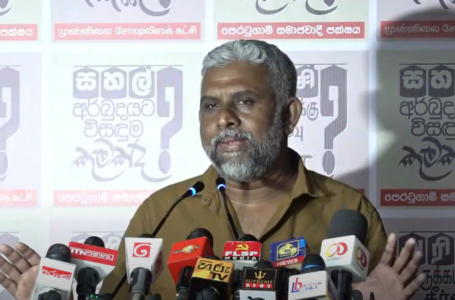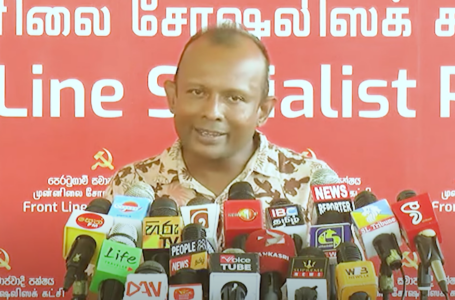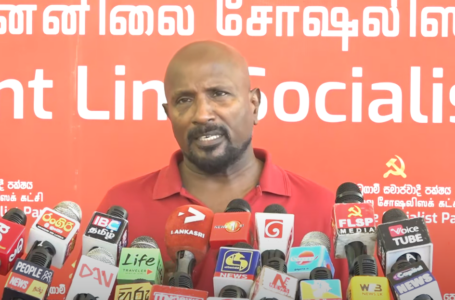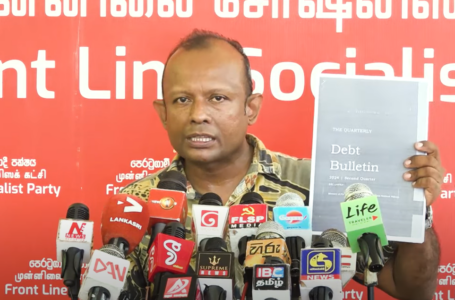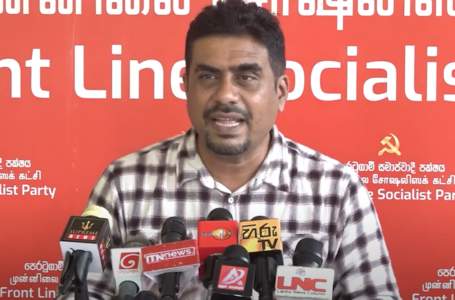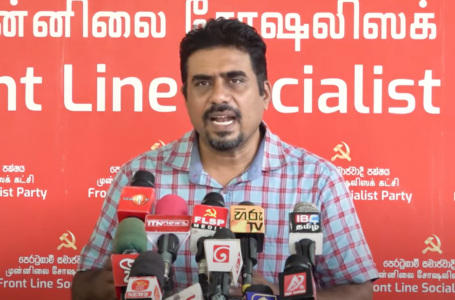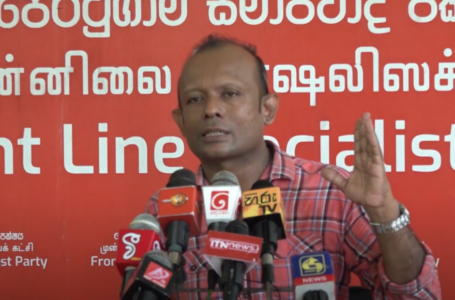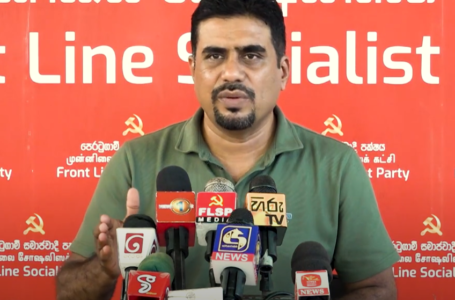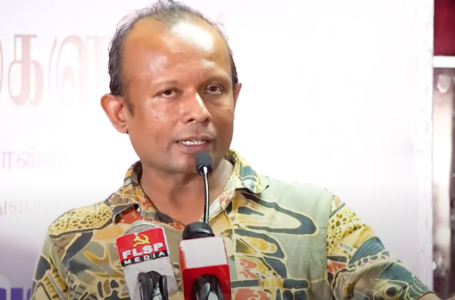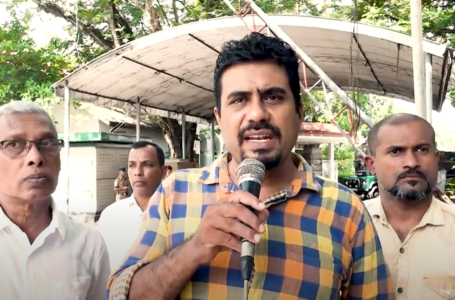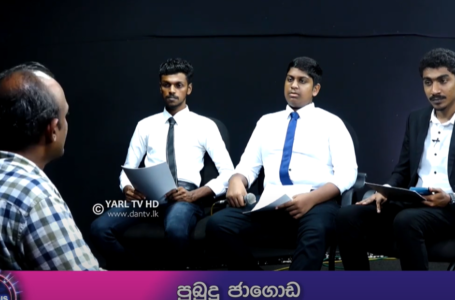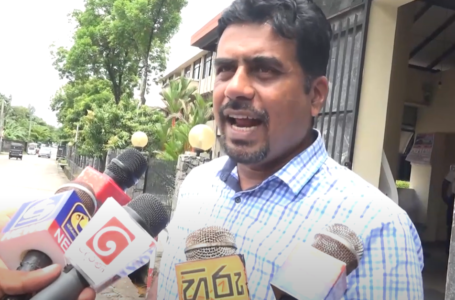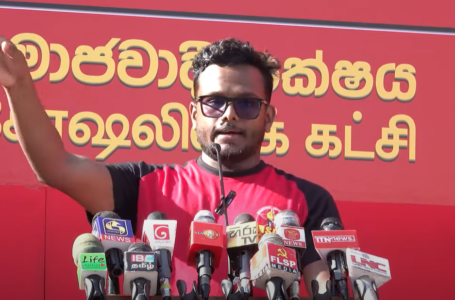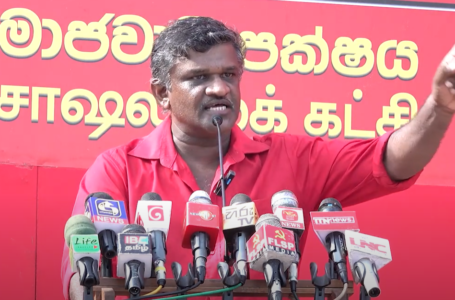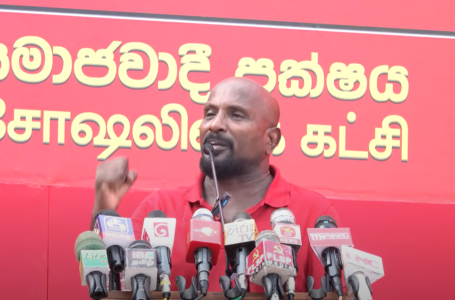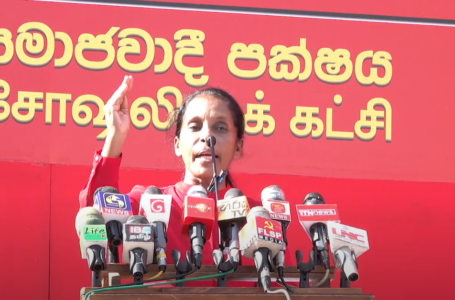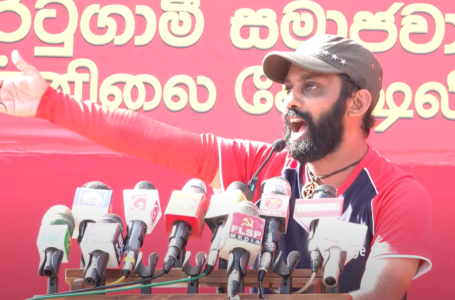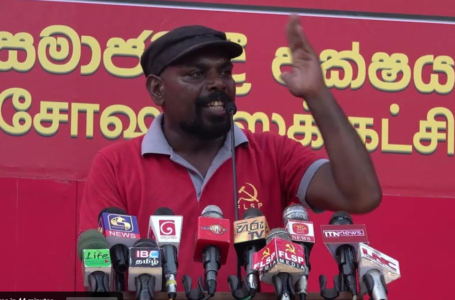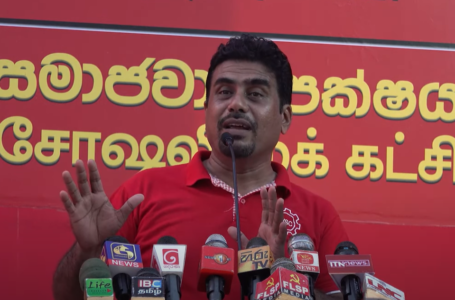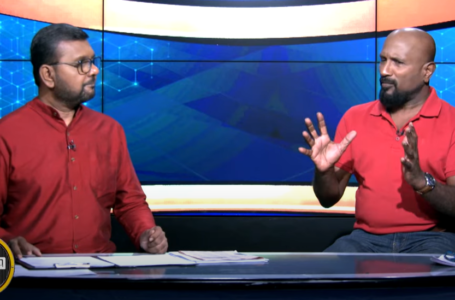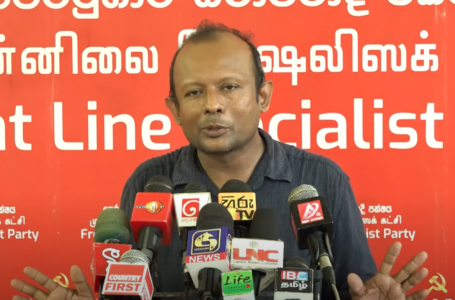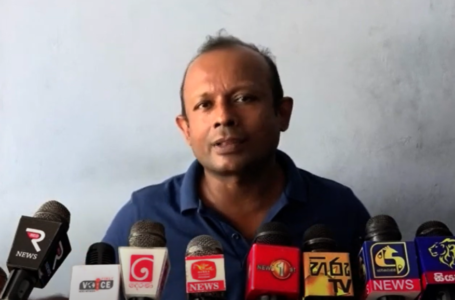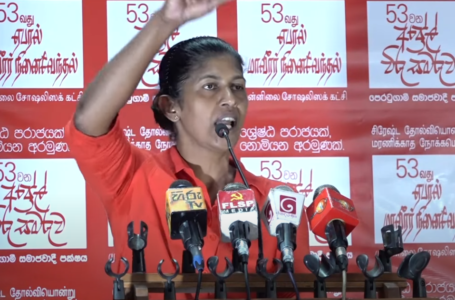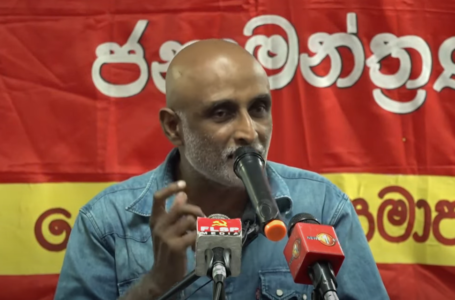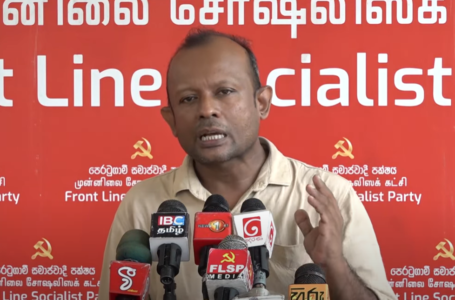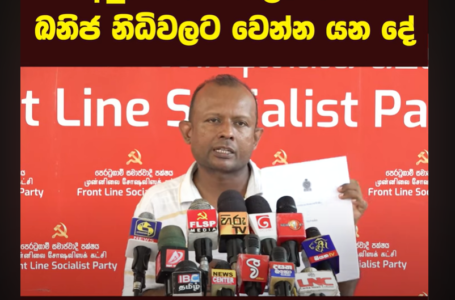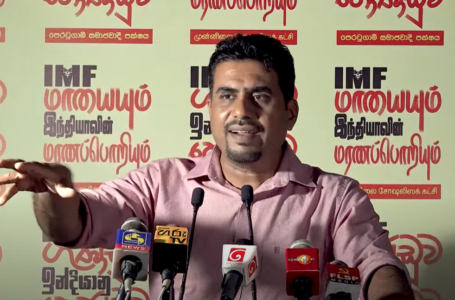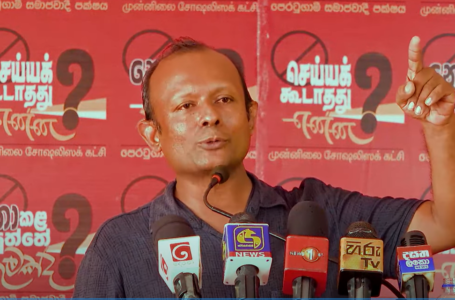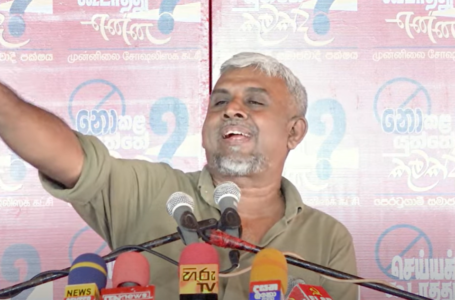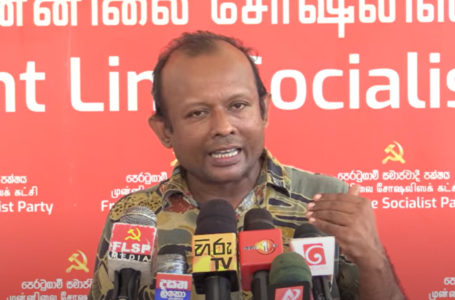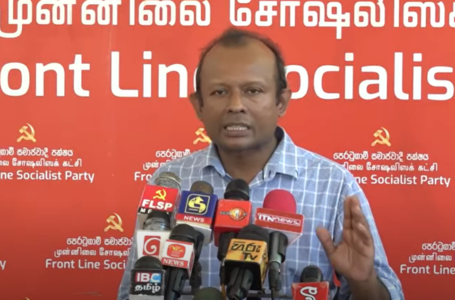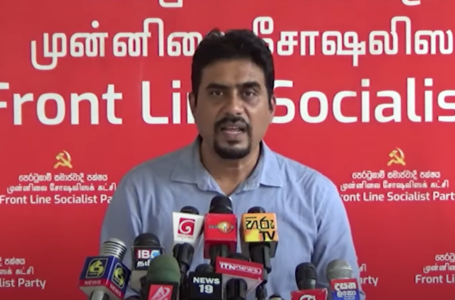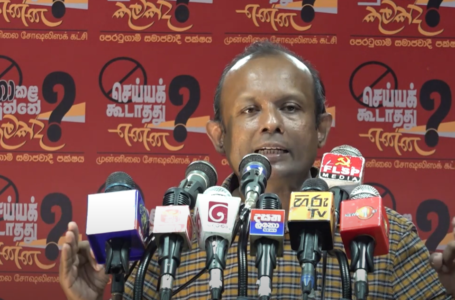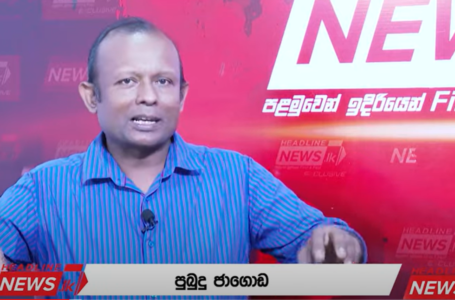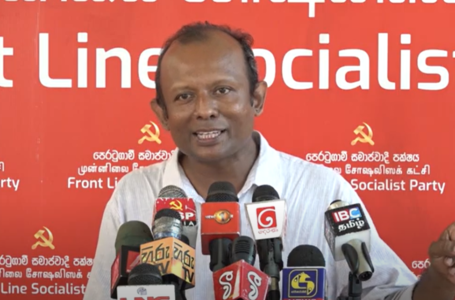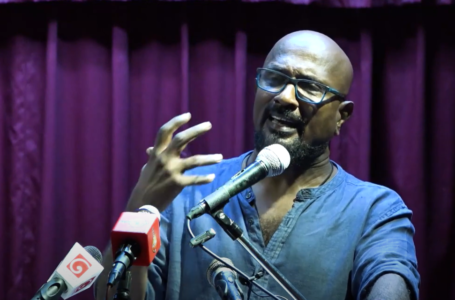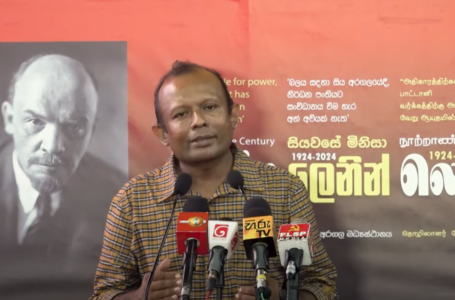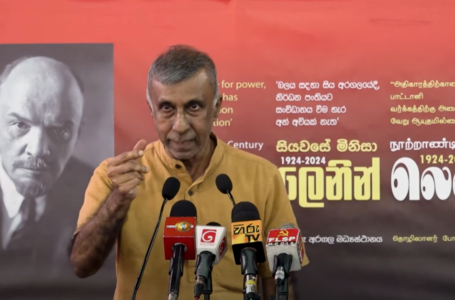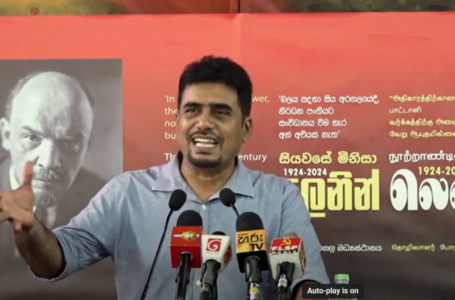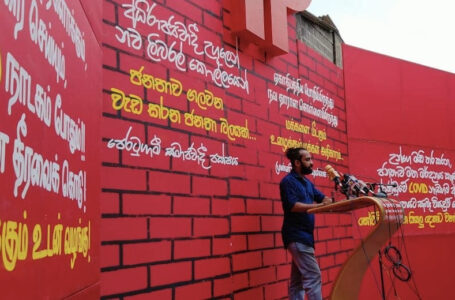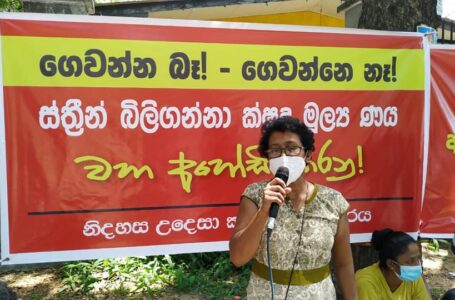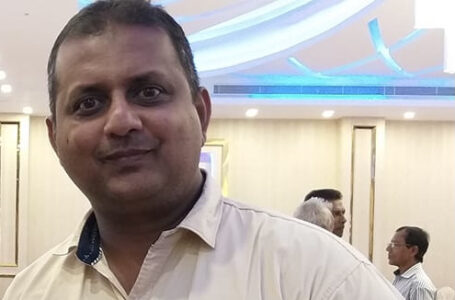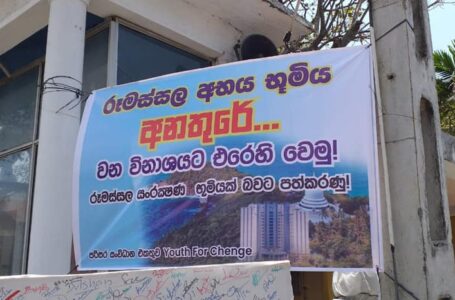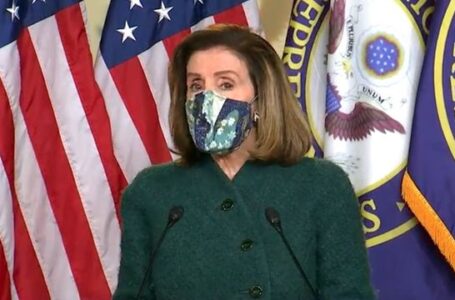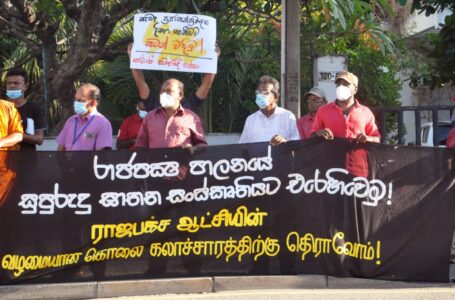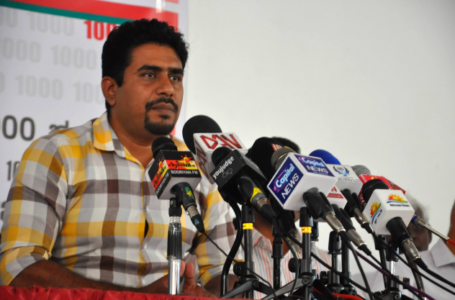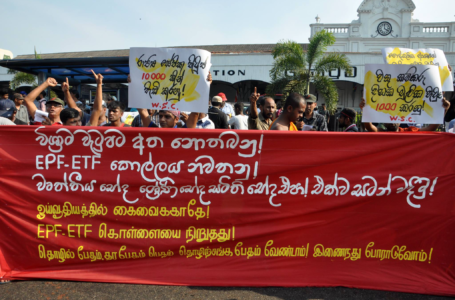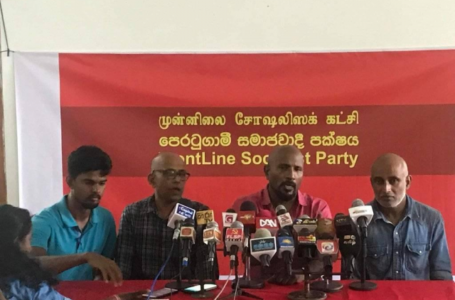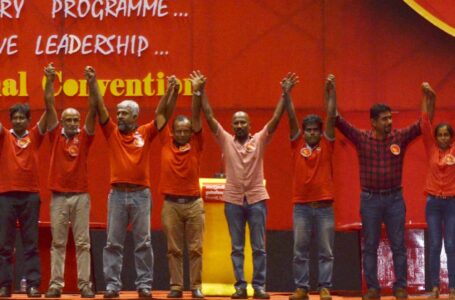Systemic change, not changing of faces is the need of the hour says FLSP
- Vidhura
- November 7, 2021
- 92
- 8 minute read
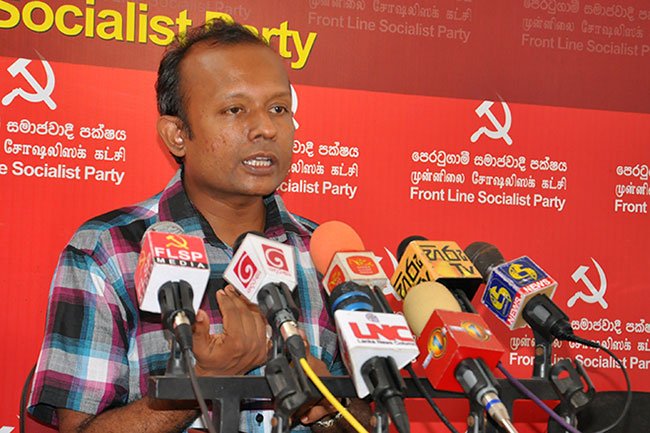
by Saman Indrajith
The prevailing crises in Lankan politics, economics and society will remain for years to come unless people understand the root cause of all such ills and remedy them, says the Frontline Socialist Party’s Education Secretary Pubudu Jayagoda.
“They should understand that the origin of all these problems is systemic failure. They need to realize that changing governments or presidents, or handing over power from one party to another, cannot bring about solutions to these problems. What we really need is a systemic change,” Jayagoda said during an interview with the Sunday Island.
“Many other parties would attribute these problems to what is now popularly called ‘Sir failed’, meaning that President Gotabaya Rajapaksa has failed. In truth, this situation has arisen because our systems have failed. This is a problem of systems. It cannot be resolved by-elections.
If anyone thinks that we would be better off as citizens if we fill the seats in parliament with qualified, educated and better people than the current lot, then he/she is mistaken. Even if we nurture and support rebel groups within the government to prevent its dictatorial acts, people will not find solutions. For that they should consciously work for a systemic change,” he said.
Excerpts:
Q: As we speak, some of your comrades from the student and education trade unions are in remand prison. Various charges have been levelled against them. What have you done to get them released?
A: They are held in prison because they led a campaign that compelled the government to withdraw its plans of privatizing education through the Sir John Kotelawala National Defence University (KDU) Bill. With that campaign, we were able to convince people of the possible threats to the education system from that legislation. It would not only privatize education but would also have paved the way for militarizing it.
The government was in a rush to get the Bill through Parliament. That attempt was defeated when all progressive forces including the Federation of University Teachers’ Associations, Inter-University Students Federation, Teacher-Principal unions and other trade unions joined forces with us against the Bill. The government was forced to postpone that debate and vote indefinitely because of the pressure from the protests.
Thereafter, it started taking revenge on the leaders of that struggle. They were taken into custody and first accused of violating quarantine laws. Now it is said that they are held under the provisions of the Offences Against Public Property Act. They are accused of committing mischief targeting a public property.
Many ministers of this government have been accused of misappropriating public funds and property. We saw in the last few weeks cases against them being withdrawn by the Attorney General. Meanwhile, he opposes giving bail to five leaders of the campaign against the KDU Bill. Four of them, including a female political activist Koshila Hansamali Perera, were infected with Covid19 while in detention. IUSF Convener Wasantha Mudalige, President of Sri Jayewardenepura University Students Union, Amila Sandeepa and Heshan Harshana of Rajarata University, as well as Chameera Koswatta, are also in remand.
International trade union bodies have called for their release. The IUSF convenor recently said that Western Province Snr DIG threatened to hold them for months without bail. Everybody knows that the police have no judicial powers. Our comrades are in detention for over three months now. In the meantime, the government has made a mockery of public property by selling off strategically important national assets.
Q: Are you referring to the government’s deal on the Kerawalapitiya power plant with an American firm?
A: The Finance Ministry’s signing a definitive framework agreement with US-based New Fortress Energy to sell 40% of the 310 MW Kerawalapitiya Yugadanavi Power Plant owned by West Coast Power Ltd is only one such attempt. It was signed secretly behind the backs of parliament and the cabinet. The actual problem is not selling off 40 per cent of Yugadanavi but the threat to our energy security by giving the monopoly of importing LNG to Sri Lanka to an American company.
In the meantime, the cabinet has decided to amend the Ceylon Petroleum Corporation Act No. 28 of 1961. That would place this country’s energy sovereignty in danger. Talks are in progress to extend the permission given to India with regard to the Trincomalee Oil Tank farm. There are other such projects such as handing over the West Container Terminal of the Colombo Port to India’s Adani Group, giving 13-acres of land near the South Container Terminal to China, giving away administrative rights of the Palaly Airport and Kankesanturai harbour to India etc.
In addition, a company named Selendiva Investments Ltd has been floated to sell off valuable properties and lands including the Hilton, Grand Oriental Hotel, Grand Hyatt Colombo, CeyNor Restaurant, Gafoor Building, York Building, state-owned lands and assets including land and buildings belonging to Foreign Ministry, the Air Force headquarters, and the Bank of Ceylon. Many of these buildings date back to the 19th Century.
The potential buyers are from China, India and the US who are vying for power in the Indian Ocean. We are not only being geopolitically trapped but also risk being in the middle of conflicts between superpowers.
Q: There is opposition within the government against these moves that appear powerful enough to stop them. Isn’t that so?
A: Leaders of 11 parties of the SLPP held a press conference and expressed their opposition against selling national assets including Yugadanawi. But it is doubtful that they are genuinely engaged in a campaign to protect national assets. They may be putting up a show to help government regain its losing popularity. There’s also a question of whether their conduct stems from personal conflicts among certain individuals in the government.
Given their past record, nobody would take their opposition seriously. People have not forgotten how this clique behaved over the 20th Amendment to the Constitution or when the East Container Terminal was to be given to Adani. They agitated in a very similar manner against the KDU Bill. They hijacked the public opposition and benefited from it.
Then at the last moment, they changed their tune so that the government could achieve its objectives. They opposed 20A tooth and nail but eventually raised their hands to pass it in parliament. They opposed the selling of the East Container Terminal but later helped to sell the West Container Terminal. They would have done the same with the KDU Bill had it not been suspended due to public protests.
Clearly, they’re engaged in derailing peoples’ opposition. If they are genuine, they should quit the government because a campaign against the government cannot be taken to its conclusion while some profess support for popular demands while remaining in government.
Q: What is the opposition doing in this situation?
A: They are trying to fish in troubled waters for their own advantage. We’ve had the universal franchise for about 90 years and five presidential elections to install six presidents. (JRJ was elected prime minister in 1977 and deemed elected president by the 1978 constitution). None of those governments nor presidents has been able to resolve the people’s problems.
Every time governments change, there are no serious policy changes. Every new government begins where its predecessor ended and continues on the same path. For example, the KDU Bill was introduced by the Yahapalana government which gazetted it. This government tried to get it passed in parliament.
Yahapalana proposed giving outright ownership of 15 Trincomalee oil tanks to an Indian company keeping only 10 tanks under the government. Now the incumbent government is trying to sign that agreement.
People have been electing governments like changing pillows for headaches. What we need is a systemic change, not a change of faces.
Q: There are preparations for an election, some say to provincial councils. Is your party ready for that?
A: The current situation is not the failure of a person or a government. The political, economic and social problems in our society continue due to a systemic failure. What we need is a systemic change. We must build a movement of people who are conscious of this truth and are convinced of the need to fight for change.
We need to form a people’s centre for that struggle which must be broad-based. We are working on that. We have started talking with trade unions and civic organizations. We are also planning to start a series of public meetings from Nov 10. We hope people will join us to change the political culture that has prevailed in this country for nearly seven decades.


